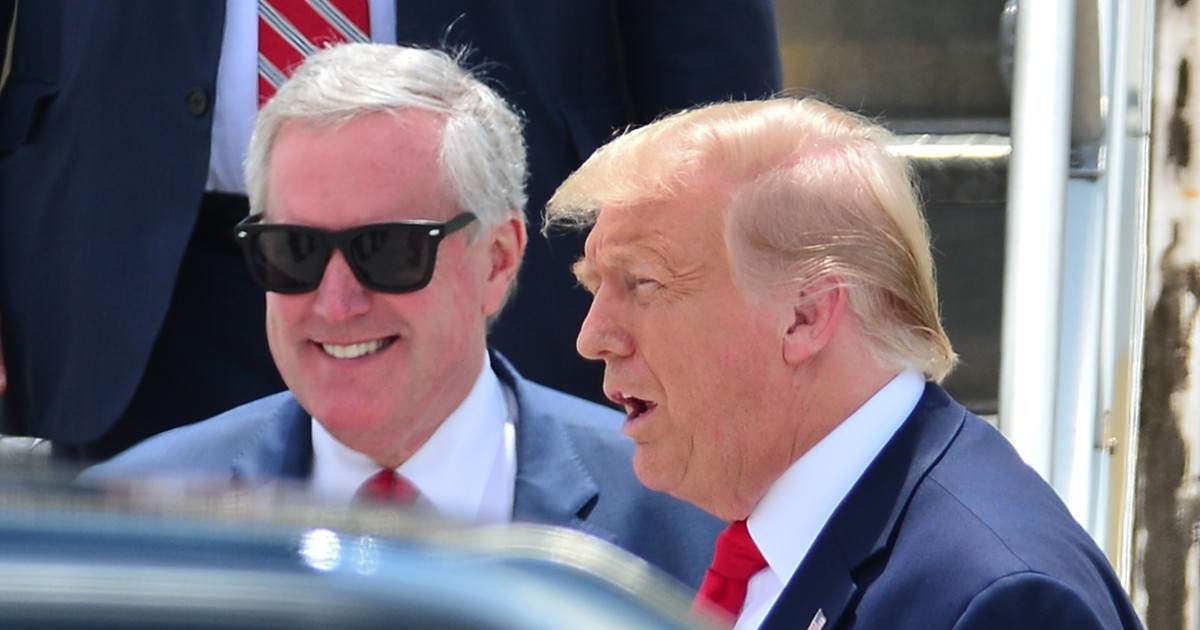OPINION: This article may contain commentary which reflects the author's opinion.
Former White House Chief of Staff Mark Meadows’ attorney is hitting back at the Democrat-led committee investigating the events that took place on January 6 at the U.S. Capitol.
In a Monday letter, Meadows legal team asked the House Jan. 6 Committee not to refer him to the Department of Justice for contempt of Congress, arguing doing so “would be contrary to law, manifestly unjust, unwise, and unfair.”
“Meadows was previously cooperating with the committee’s investigation into the events surrounding the Jan. 6 attack on the Capitol by a mob of Trump supporters. But he later stopped working with the investigators and is now suing them. The committee is expected to recommend this week that the House refer him to the Department of Justice for contempt of Congress,” Fox News reported.
“The contemplated referral would be contrary to law because a good-faith invocation of executive privilege and testimonial immunity by a former senior executive official is not a crime,” Meadows’ lawyer, George Terwilliger, wrote.
“A referral to the Department of Justice based on such an invocation would ignore the statute’s legislative history and historical application, contravene well-established separation of powers principles, and improperly impute a criminal intent to a good-faith actor,” he added.
Fox News reported:
The letter also argues that referring Meadows for contempt would harm the institution of the presidency because it would tread on separation of powers and potentially make future presidential advisers reluctant to give their principal full and honest advice on key decisions.
The Jan. 6 Committee, however, is aggressively asserting what it says are its constitutional powers of oversight and investigation. Chairman Bennie Thompson, D-Miss., and Ranking Member Liz Cheney, R-Wyo., said last week that Meadows’ claims of privilege do not extend to much of what he would discuss with the committee.
“Even as we litigate privilege issues, the Select Committee has numerous questions for Mr. Meadows about records he has turned over to the Committee with no claim of privilege, which include real-time communications with many individuals as the events of January 6th unfolded,” they said in a statement. “We also need to hear from him about voluminous official records stored in his personal phone and email accounts, which were required to be turned over to the National Archives in accordance with the Presidential Records Act.”
Meadows has sued Pelosi and members of the partisan House January 6 Committee.
The lawsuit asks a federal court in Washington, D.C. to nullify subpoenas issued by the committee for Meadows’ testimony and his phone records. Meadows also argued that the demand for his cooperation with Congress is “overly broad and unduly burdensome.”
The lawsuit comes after Meadows informed the committee that he would no longer cooperate with its investigation.
Meadows argued in the filing that, “absent any valid legislative power,” may result in “grave harms” — namely that he could be “illegally coerced into violating the Constitution” in failing to comply with former President Trump’s claims of executive privilege.
Meadows pointed out that he had handed over thousands of records to the committee, including “1,139 documents and 6,836 total pages” — all non-privileged — and “2,319 text messages and metadata from his personal cell phone.”
